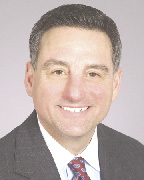The New England/Upstate NY CRE Chapter held its first fall event on Sept. 21st at The Algonquin Club in Boston. This luncheon event was entitled "How does a Counselor Learn to Become a Counselor: Getting to the Next Level" and attracted approximately 23 members and guests. This event was proposed in the spring by John McLaughlin, CRE who serves on the chapter board and did a fine job organizing this event.
I introduced the format for the afternoon. The format included a moderator and a panel of CREs from varying disciplines. The moderator was past CRE national president, Jon Avery and the CRE panel included: Jill Hatton, formerly of Blackrock, Web Collins, senior appraiser with CB Richard Ellis and Bill McCall of McCall & Almy. Avery then introduced the panelists and allowed each panelist 5-10 minutes to describe how they were introduced to the CRE profession. The topic is extremely intriguing since there are no college courses that teach real estate professionals how to become advisors and there is no CRE curriculum or courses on the topic. It seems to be an industry that evolves, but evolving from what?
Avery offered the following questions: 1. How did you become a counselor and how were you introduced to CREs? 2. How do you see the market today for CRE skill-based services? 3. How does a CRE compete in this down economy?
The CRE organization had published a book in 1992 that addressed the counseling profession entitled "Real Estate Counseling in a Plain Brown Wrapper;" a practical guide to the profession. This book was referenced during the program. Avery, as moderator, gave his introduction to the counselors from Charlie Akerson, long-time CRE who passed away last year. Avery found the CRE members highly intellectual and kept him interested in an array of different high level issues. Today, Avery sees George Lovejoy and Dick Simmons as his role models in his CRE career. Avery then introduced the first panelist, McCall.
Bill McCall, CRE
How was McCall exposed to CRE? He knew a few CREs and had high regards for its members such as George Lovejoy who influenced him as a reason to join. McCall founded Leggat, McCall and Werner, a full service commercial real estate firm and sold it to Grubb & Ellis in 1987. He then opened a new firm, McCall & Almy, to provide advisory and tenant rep services. Since he had narrowed his services to tenant rep and advisory, he felt that he needed credentials to support his stance as a real estate advisor and he pursued the CRE designation. Bank of Boston was his first client after he earned his CRE designation and he then entered into non-profit organization work. His contacts within CRE were a great help in his support of Bank of Boston issues that were national. He also wanted to compete with the big firms and CRE helps establish credentials. He was able to enter work with hospitals soon after.
What about the market today? McCall believes that the environment is a low growth environment and the U.S. doesn't have adequate jobs. He sees 3-3.5% growth over the next few years and believes that we need 5%. The new buzz words are "consolidation" and "productivity." Neither word helps commercial real estate. Therefore, business in commercial real estate will be heavy on lease expiration and renewals. There is 200 million s/f of commercial space in the Boston market and with renewals so there is always activity. Vacancy will be a lingering issue without job creation. McCall believes that we should expect vacancies in the teens to high 20 percent. It's a great time to sell due to the low cap rates and if you have solid properties. If he was ever to write a book on real estate, it would have one word "Sell" because he feels that that is what an owner should do.
Should you buy? McCall felt that an investor needs a long-term horizon and be able to "catch the next wave". You can now buy below replacement cost. If you buy good quality buildings at "A" locations that it's a time to buy. But he restated that he also said to sell but suggested that you think of both. The only problem with selling is that you have cash to invest in a low interest environment. McCall warned not to get overleveraged because it will lead to new problems. He mentioned that Tom Flatley and Bill Cummings are 2 good examples of investors that did not over-leverage in their later years. The cap rate compression is 5-6% and that will increase in the next 5-6 years when interest rates change. It will increase our awareness of the fundamentals of real estate and the importance of NOI.
Part 2 will appear in the November 12th edition of NEREJ.
Robert Nahigian, FRICS, CRE, is the 2010 CRE chairman of CRE/NE and president of Auburndale Realty, Co., Newton, Mass.
Tags:









